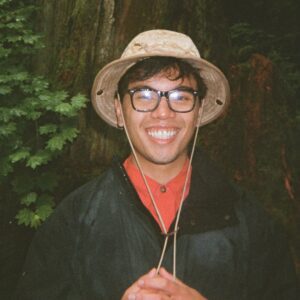In this week’s Ask the Expert, we’ll hear from Jenny Peng, investigative reporter for the Toronto Star – Vancouver. Her writing covers a wide-array of locally-focused subjects including business, community-focused philanthropy, and most recently, the cannabis industry. Her journalism has previously earned her the Langara Peace Prize.
Describe an average day in your life. Do you have a morning/evening routine etc?
My morning commute on the Skytrain is pretty unique because I get to see StarMetro readers in action. The most gratifying thing about that is seeing how diverse our readers are and the way they’ve embraced our reporting.
My morning in the newsroom usually starts with a process I call “fishing” where I’m looking for the best story of the day in business and, more generally, news that hasn’t been widely covered or a story I could advance and offer a different angle.
People might think journalists work very independently, while that may be true in the writing process, our newsroom is very collaborative in that we have roughly two story meetings a day, which helps us determine our overall coverage and to share ideas or offer suggestions in developing story ideas more fully. There isn’t a day where I am not learning something new from the group of deeply passionate journalists and editors I work with.
Who do you most admire?
There are many men and women I admire and their roles are vastly different. What they have in common is integrity in how they treat those around them, in decision making, and how they conduct themselves especially when challenges arise.
People who are exemplary are, for instance, the survivors of the Japanese-Canadian internment during World War II.
It’s a part of Canadian history that I’ve become interested in lately and have had the opportunity to interview survivors. One of them is Mary Kitagawa, a daughter of the Murakami family on Salt Spring Island, who spent many decades sharing the story of how her family was separated, displaced and lived through the toughest of circumstances for many years in B.C. and Alberta.
Even after all that, she’s made some remarkable contributions to society. For instance, leading up to 2007 she advocated for the renaming of a federal building in Vancouver after Douglas Jung rather than after the late Conservative MP Howard Green who called for the removal of Japanese-Canadians from B.C.’s coast.
She did that at a time when purposeful renaming of public spaces wasn’t as common as it is today.
In such a go-go-go world, what do you do to unplug?
The best way to unplug these days as a new mom is to spend time with my 10-month-old daughter, and pretty much the only thing I have time for. She’s so curious about everything and everyone, and she’s fearless about trying new things, which are great learning moments for me.
I also love experiencing other forms of storytelling like film, art, and music. It helps me take a step back from my own life and remind me how big the world is and that there’s still so much to see and learn. It inspires me to be more creative.
If you could do any job for one day, what would it be?
A killer whale researcher or orchestra conductor. The killer whale population is incredibly intelligent and social beings, and we’ve seen this summer some sad developments from our local j-pod. I’ve always been fascinated by them and I would really enjoy studying and observing their behaviours in the wild. As for orchestra conductor, there’s something wonderful about being lost in a musical performance and sharing it with a group of people.
Which of your articles are you most proud of? How much work went into it?
In a creative industry such as mine, originality is a valuable currency. The stories I’m most proud of are stories that I feel I trademarked by being the first or only one to have told it. It can be about a local business getting their crocodile meat into T&T Supermarket aisles after so many years selling in a niche market or tradeswomen wanting more opportunities in taxpayer-funded projects that have influenced policy changes at different levels of government. Most of the time that goes into developing the story is finding it, once I’ve found it the idea, it can sit in my mind for weeks or months before all the pieces of the puzzle come together and it’s ready to be published.
What’s the one thing you wish PR professionals would stop doing?
Using the words “world’s first” or “first ever” to sell an idea. A good pitch shouldn’t need inflated selling points to be appealing. Also, the best releases I have gotten have always been straightforward and written in a way that doesn’t take three or four re-reads even if the ideas are complex. Also, PR professionals should advise their clients or organizations to list their phone numbers and direct phone numbers of key people who can answer to the media on their websites or social media channels. It’s the surest way of getting noticed by journalists.
ABOUT JENNY
Jenny Peng is a journalist for the Toronto Star – Vancouver.
You can follow her on Twitter: @jennypengnow
Categories:
Ask the Expert
Tags:
Ask the Expert, expert, journalist, Media, news, PR



